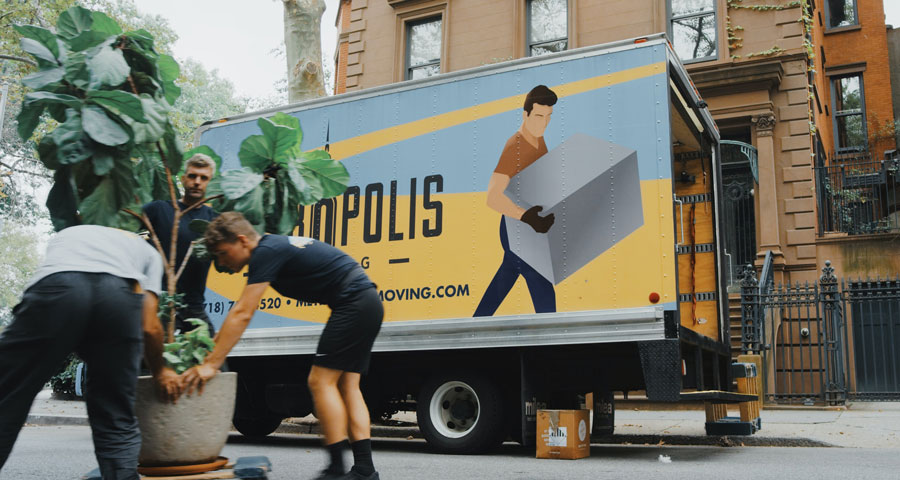
Planning a move across state lines? Check out some tips for moving out of state that will make the process a little easier.
1. Work with a Trustworthy Realtor
Buying a home in another state can be stressful. Some buyers travel out-of-state to look at houses and meet with a realtor. However, that’s not possible for everyone. Many realtors who work with out-of-state homebuyers offer remote buying services. These include virtual viewings, video calls, and facilitating electronic closings. That way, you can purchase your home remotely with full confidence.
Working with a trustworthy realtor who knows the local area is crucial. They can advise you about nearby schools, amenities, transportation options, neighborhoods, and more. And, they can suggest homes near where you’re planning to work or in the school district you’d like your kids to attend.
In Florida, our team can guide you along the homebuying process, whether you’re shopping in person or through your computer.
2. Hire Good Movers
Long-distance moves require more planning—and more money—than just moving to the next town over. If you can afford one, a full-service moving company can make your move hassle-free. Of course, not just any moving company will do. Contact a few different companies and compare services and rates. If possible, talk to friends or family who have made interstate moves to learn about their experience. Compare the cost against other moving options, such as hiring loaders and/or renting a U-Haul or a shipping container.
3. Hire a Reputable Car Mover if Needed
Depending on how far out of state you’re moving, you might not want to or be able to drive your car to your new home. Look for a reputable car moving company to transport your vehicle(s) for you. Request a free quote from several companies to ensure you’re getting the best deal. And, don’t forget to read customer reviews. Schedule a few weeks in advance for the most affordable rates.
Keep in mind most car transportation companies don’t actually transport your vehicles themselves. They subcontract out the work and charge you a fee for their service. Find out what their fee is up front, and make sure they are open and honest about the service they provide.
An alternative to hiring a car moving company is asking a close friend or family member to drive your vehicle to the new home. Then, pay for their return flight home. If it works out, this could end up saving you money. Plus, you’ll have an extra set of hands to help you unpack!
4. Save Up Some Extra Money
Buying a home always comes with unexpected expenses, especially if that home is in a different state. Be prepared for those unexpected expenses by saving up some extra cash in advance. Put some money from your paycheck aside in the months leading up to the move. You can also host a moving sale to earn money from the belongings you don’t plan to take with you.
5. Declutter & Make Decisions about Furniture
Unless you’re hauling your belongings yourself in a rented moving truck, the cost to move your stuff to another state is often calculated by the shipment cubit feet. The more you bring, the more you’ll pay. Decluttering before moving can help you save a lot of money. Not to mention it’ll make packing and unpacking a lot easier.
Consider donating, selling, giving away, or throwing out items that are broken, unused, outdated, or no longer needed. Give special consideration to your furniture. Furniture is bulky and heavy, so it may be cheaper to buy new furniture than to move your old stuff. Plus, then you can choose pieces that fit perfectly in your new home.
6. Make a Plan for Your House Plants
There are federal and state laws that regulate the interstate movement of house plants. Be sure to do your research before your big move. Most houseplants can be taken across state lines without a problem. However, some states only permit you to bring in plants that were grown and kept indoors. Other states require that your plants live in sterile soil. Stricter states require inspections and quarantine periods. Contact the State Plant Regulatory Official in the state you’re moving to for specifics.
For example, in Florida, houseplants can enter state lines as long as they are accompanied with a certificate of inspection. If your home state doesn’t issue an inspection and certification service for house plants, you must provide the Florida Department of Agriculture and Consumer Services with the address where the plants will reside.
If you’re unable to take your plants with you, sell them or give them to a friend before moving.
7. Be Prepared for Cost of Living Differences
The cost of your new home isn’t the only expense that changes when you move. Your mortgage payment might be less in your new state, but other costs could be more. For example, gas, groceries, utilities, property taxes, state taxes, city taxes, etc.
For a general idea of how your new state compares to your current residence, use areavibes.com. Areavibes provides the general cost of living and livability information. First, look up your new state, county, town, or exact address. Then, look up your current address and compare the findings. Forbes also offers a cost of living tool that lets you compare the cost of living between major cities in each state.
8. Evaluate Your Banking Options
Does your current bank offer locations and services in your new state? If not, research banking options near your new home. Whether you want to choose an online-only bank or a bank with physical branches, you should be able to set up any new accounts before the move.
9. Update Your Car Registration & License
Most states require that you update your driver’s license within 30 to 60 days of moving. Similarly, each state requires that you register your vehicle within a set period of time after moving. Visit your new state’s DMV relocation or new resident webpage for more information.
In Florida, you must obtain a Florida driver license within 30 days of establishing residency. You also need auto insurance from a Florida insurance agent who is licensed to sell insurance in Florida so that you can title and register your vehicle within 10 days of establishing residency.
10. Schedule Time for Your Kids to Say Goodbye
Moving to a new state is hard on anyone, but especially kids. Help them plan special get-togethers with their close friends. Encourage them to exchange email addresses, phone numbers, or addresses so that they can keep in touch. Your kids might also enjoy visiting favorite spots like your local pizza place, park, or movie theater one last time.
11. Prepare for the School Transfer
If you have school-aged kids, moving to a new state means moving them into a new school. Research school options and decide if a public, private, or charter school will best meet your child’s needs. Some public school districts, such as the School District of Palm Beach County, let children attend schools outside of their attendance zone. In other words, you could end up with many different public school options for your children.
Regardless of what type of school they’ll attend once you move, it’s important to request records from your kids’ current school to make transferring a little easier. Many public school districts don’t let you enroll your kids until you’ve actually moved into the district. Collecting records and filling out paperwork ahead of time can prevent further delays.
12. Locate New Doctors for the Family
Start your search for family doctors, pediatricians, OBGYNs, dentists, etc. as early as possible. Many offices have long waiting lists or no availability at all. This tip is especially important if you must regularly see doctors to manage health conditions. If your health insurance is changing after the move, you might not be able to schedule appointments right away. However, you can start finding options for yourself and other family members.
Speak to your current practitioners about their medical release policies. You might be able to sign forms in advance that would give your new doctors access to your records.
13. Get Involved in The Local Community
One thing people over look when moving to a new state is the importance of social interactions with other people near them. It’s not always easy to meet new people, but one surefire way is to get involved in your community. There are many ways to get involved, and you can do as much or as little as you want, but its a great way to meet people and feel involved.
